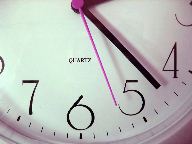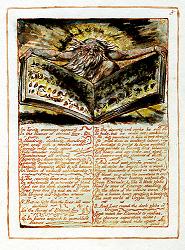For Earth Day – line your walls with books!
April 22, 2008
(If you haven’t already.) (Especially if they’re used i.e. recycled books.)
books on the mind, consciousness, cognitive science…
April 22, 2008
(If you haven’t already.) (Especially if they’re used i.e. recycled books.)
April 20, 2008
 The current issue of New Scientist has a feature on “life-changing books” by 17 prominent scientists, with the magazine writers and editors chiming in through short videos and some readers’ suggestions as well.
The current issue of New Scientist has a feature on “life-changing books” by 17 prominent scientists, with the magazine writers and editors chiming in through short videos and some readers’ suggestions as well.
Some mind-related picks:
V.S. Ramachandran recommends Art of the Soluble by Peter Medawar, which is a little hard to find but is included in Pluto’s Republic: Incorporating The Art of the Soluble and Induction and Intuition in Scientific Thought. (Check your library for either title.)
Oliver Sacks discusses The Mind of a Mnemonist: A Little Book about a Vast Memory by A.R. Luria.
Frans de Waal nominates Darwin and the Emergence of Evolutionary Theories of Mind and Behavior by Robert J. Richards.
March 28, 2008
Comments (2) - cognitive science,consciousness,mind,philosophy of mind,reading
January 3, 2008
 The Book A Month Challenge theme for January is time, an excellent choice that should be easy to connect with “books on the mind.” I think the hard part will be picking out one book to read! I’d especially like to find a good book on subjective time experience, or maybe something in the anthropology of time, comparing time experiences across cultures. Here are some possibilities:
The Book A Month Challenge theme for January is time, an excellent choice that should be easy to connect with “books on the mind.” I think the hard part will be picking out one book to read! I’d especially like to find a good book on subjective time experience, or maybe something in the anthropology of time, comparing time experiences across cultures. Here are some possibilities:
Or, already in my library waiting to be read (sometime!):
Here’s a “LibraryThing tagmash” on time, mind
and one on time, anthropology
Comments (1) - Book A Month Challenge,culture,mind,reading,reality
December 22, 2007
I’ve been reading a couple of novels set in India, in which occasionally I come across some Indian cultural references or terms I’m not familiar with. I could sorta get an idea from the context but I thought I’d look them up online. For example, “golgappa” – finding this post about the food (“one of the top 5 most sexy things you can put in your mouth”!) really made the scene in the book come alive.
That’s just one small example of how the web can enhance reading (for those of us who still read books – see recent NEA report) – along with author & book websites, ebooks, online discussions and reviews, the ability to search inside books, watch videos of the authors, find obscure used books, etc.
This blog post “What does it mean to read?” from Out of the Jungle also touches on some of the ways reading is changing [Kirschenbaum is the author of an article in the ‘Chronicle of Higher Education’]:
The digitization of literacy changes many things. Kirschenbaum comments on how reading and writing are becoming commingled in surprising ways. For instance, I was just looking at the Nature Alert, a form of table of contents/alert publication. Once upon a time, it was just a list of abstracts to alert the reader of full-length articles in the journal Nature. Now, besides the abstracts with links, one can access videos where authors discuss their research. Once, they had a sound file of a musician experimentally playing a very ancient bone flute. They have podcasts which expand the brief notes, covering a variety of the headlines each week with different stories. The articles include hyperlinks to references, encouraging the inquiring reader to follow multiple paths of related thought. And readers can post comments, and react to the comments of others.
Nature Alert has become a blog, a current awareness journal, links to complete science studies and literature, and multi-media extravaganza, all at once.
 See also:
See also:
“Twilight of the Books” article at the New Yorker
“A Good Mystery: Why We Read” from the New York Times
